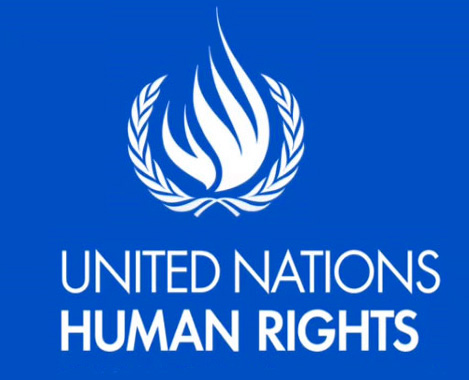The report of Hilal Elver, the UN Special Rapporteur on the right to food which was presented during the 34th session of the United Nations Human Rights Council (UNHRC) incorporated the findings of PAN Asia Pacific (PANAP).
Elver’s report jointly written together with Baskut Tuncak, the Special Rapporteur on the implications for human rights of the environmentally sound management and disposal of hazardous substances and wastes cited PANAP’s research and extensive studies on the detrimental impacts of pesticide use in the context of human rights violations of pregnant women, communities living near agricultural land and particularly, transgressions against children.
PANAP Executive Director Sarojeni Rengam said, “Multiple accounts of pesticide poisonings among children have taken place and continue to persist, largely due to many corporations that are conducting businesses as usual for profits.”
The report acknowledged many untoward incidents among children, from the deaths of 23 children in India in 2013 after consuming monocrotophos (an acutely toxic insecticide) contaminated meals, and the poisoning of 39 preschool children in China in 2014 due to the consumption of food containing rodenticide tetramethylenedisulfotetramine (TETS) residues, to the deaths of 11 children in Bangladesh in 2015 after eating fruits laced with pesticides.
Rengam added, “The price of the corporations’ abhorrent negligence had to be steeply paid by the many lives of young innocent children. These are gross violations of their rights.”
The poisoning cases give a preview of the pesticides’ acute and chronic effects. Research done before and after these events provides sufficient evidence to indict low level exposures to pesticides as a serious threat to health and well-being of children, and the subsequent generations.
“Early-life exposure can damage children’s developing brains and body systems, disrupting mental and physiological growth that can lead to a wide range of diseases and disorders. Pesticides are already considered as ‘silent pandemic’ by public health experts,” cautioned Dr. Meriel Watts, PANAP Senior Science Advisor and author of Poisoning Our Future.
PAN has estimated that the number of people affected annually by short- and long-term pesticide exposure ranged between 1 million and 41 million. However, there is no dependable global statistics from governments or industries on the number of people who suffer from pesticide exposures.
This then raises the question, again, on whether or not pesticide corporations are exerting undue influence on policy makers to downplay the serious threats posed by the products they manufacture and sell. Pesticide manufacturers have the acquired responsibility to protect users and others throughout the pesticide life cycle including through the retail chain, but the report highlights the manufacturers’ failure to meet this responsibility.
As pointed out in the report, in 2014, in Punjab, India, the companies failed to adequately inform farmers about the dangers of their pesticides or the necessary safety measures. This is neither an isolated case nor a one-off incident.
“This report substantiates our claim on the need to move away from industrial agriculture and adopt agroecology for a better future especially for our children,” said Deeppa Ravindran, PANAP’s Protect Our Children campaign coordinator. “We agree with the special rapporteur’s statement: ‘The assertion promoted by the agrochemical industry that pesticides are necessary to achieve food security is not only inaccurate, but dangerously misleading’”. Successful cases of agroecological farming in Asia, Africa, Latin America, Europe and USA, presented in PAN’s book Replacing Chemicals with Biology.
Given all these severe problems due to the continued use of pesticides, Elver has recommended that, “The international community must work on a comprehensive, binding treaty to regulate hazardous pesticides throughout their life cycle, taking into account human rights principles.”
Among the special rapporteur’s recommendations to further prevent many of the violations of the vulnerable groups similarly reflect PANAP’s approaches to addressing the issue of industrial farming.
Some of the recommendations of the report;
- The international community must work on a comprehensive, binding treaty to regulate hazardous pesticides throughout their life cycle, taking into account human rights principles. Such an instrument should:
(a) Aim to remove existing double standards among countries that are particularly detrimental to countries with weaker regulatory systems;
(b) Generate policies to reduce pesticide use worldwide and develop a framework for the banning and phasing-out of highly hazardous pesticides;
(c) Promote agroecology;
(d) Place strict liability on pesticide producers.
- States should:
(a) Develop comprehensive national action plans that include incentives to support alternatives to hazardous pesticides, as well as initiate binding and measurable reduction targets with time limits;
(c) Establish impartial and independent risk-assessment and registration processes for pesticides, with full disclosure requirements from the producer. Such processes must be based on the precautionary principle, taking into account the hazardous effects of pesticide products on human health and the environment;
(d) Consider non-chemical alternatives first, and only allow chemicals to be registered where need can be demonstrated;
(e) Enact safety measures to ensure adequate protections for pregnant women, children and other groups who are particularly susceptible to pesticide exposure;
(i) Create buffer zones around plantations and farms until pesticides are phased out, to reduce pesticide exposure risk;
(l) Regulate corporations to respect human rights and avoid environmental damage during the entire life cycle of pesticides;
This is indeed a very important milestone in our efforts to address the assaults especially on vulnerable groups arising from the reckless use of pesticides. Many findings from PANAP’s work, including the report we submitted on behalf of PAN International during the UN Child Rights Conventions for the Day of General Discussion on Children’s Rights, were highlighted in the report.
Contact: Deeppa Ravindran, Pesticides Programme Coordinator, deeppa.ravindran@panap.net








Discussion about this post